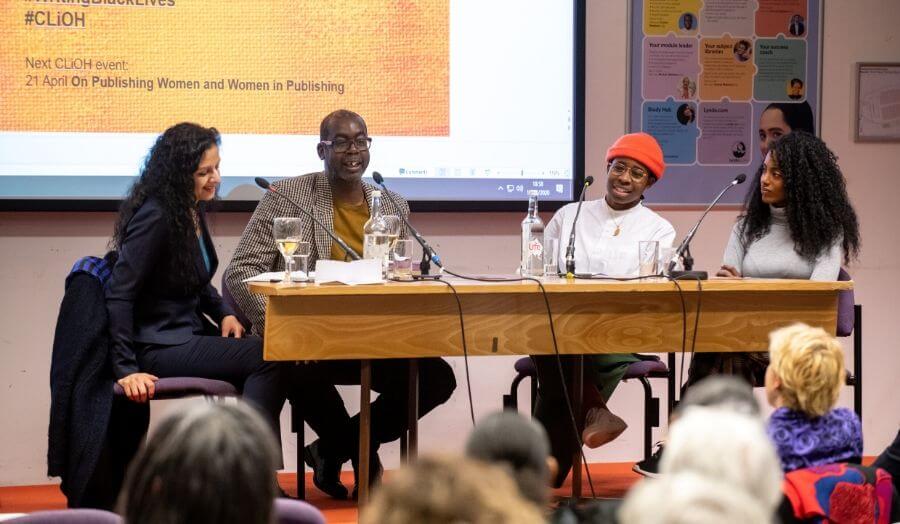Dr Anne Karpf talks about the launch, which took place at the Writing Black Lives event.
Date: 01 April 2020
The recent explosion of black creativity was celebrated at London Metropolitan University on Tuesday 10 March, 2020, at the launch of the university’s new Centre for Life Writing and Oral History (CLiOH). But Lemara Lindsay-Prince, commissioning editor of #Merky Books (a collaboration between rapper Stormzy and Penguin Random House), cautioned against seeing this as a renaissance, pointing out that “we stand on the shoulders of giants – and let’s see who else we can bring through the door.”
Opening the event, Vice-Chancellor Lynn Dobbs said that CLiOH was another opportunity for the university to connect with its local community. London Met, she said, was proud of the fact that it had more students of colour than any other London university.
Patrick Vernon, former non-executive director of Camden and Islington Mental Health Foundation Trust, who led the successful campaign for a National Windrush Day, was another panellist at the Writing Black Lives event. Publishers over the past five years had begun to take black voices more seriously, he noted, but still, for the most part, black lives didn’t matter – TV programmes often only referred to people of colour in connection to riots with the school curriculum based on ‘dead, white men’.
The panel identified some of the obstacles still facing black writers and researchers, among them lack of access to funding and experience in applying for grants. Magdalene Abraha, crowned Trailblazer 2020 by London Book Week earlier this year, argued that there were also problems with “diversity within diversity: I’ve been at several meetings where a black person has submitted something that isn’t ‘black enough’.” In addition, she wanted to read not just young black writers but also intergenerational dialogue.
Lindsay-Prince craved black genre fiction – sci-fi, romance, young adult and queer fiction.
“I think what’s missing is nuance,” she declared. “When will we be allowed to be mediocre and not just heroic or exceptional?” Bemoaning the lack of black people in publishing, she said she wanted to see people of colour “not just on the shelf but sitting beside me – someone who looks like me, sounds like me. Where’s the Venus to my Serena?”
In spite of this, the panel reeled off a list of exciting new initiatives, from Taking Up Space, #Merky’s Books’ manifesto for change in higher education, to #Twentyin20, independent publisher Jacaranda’s commitment to publish twenty books by black authors in 2020. There are a million black stories just waiting to be told, Vernon argued. Abraha’s new nonfiction series, A Quick Ting On, the first on the black British experience, launching in the autumn, will tell some of them, covering everything from plantain to Afrobeats.
Abraha said that she was inspired by her WhatsApp group chats which made her wonder “why don’t we ever see these in book form? You have to speak in the language that young people understand”.

